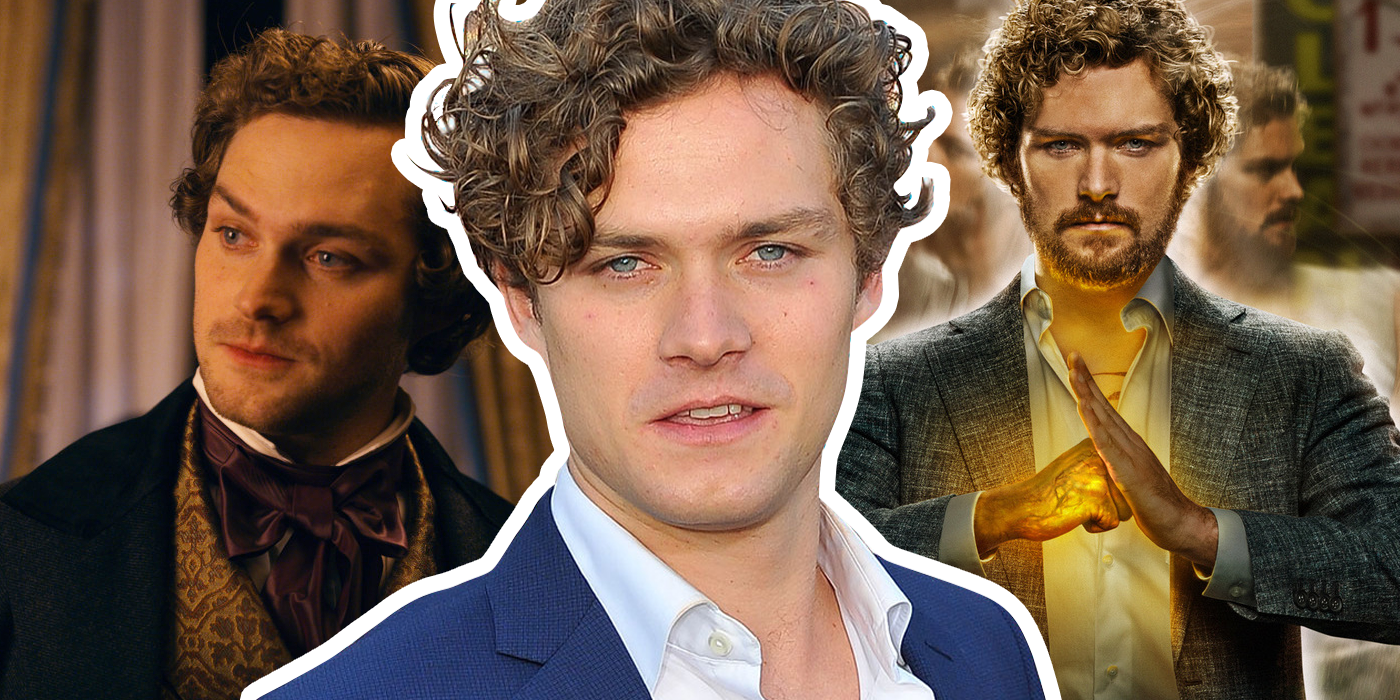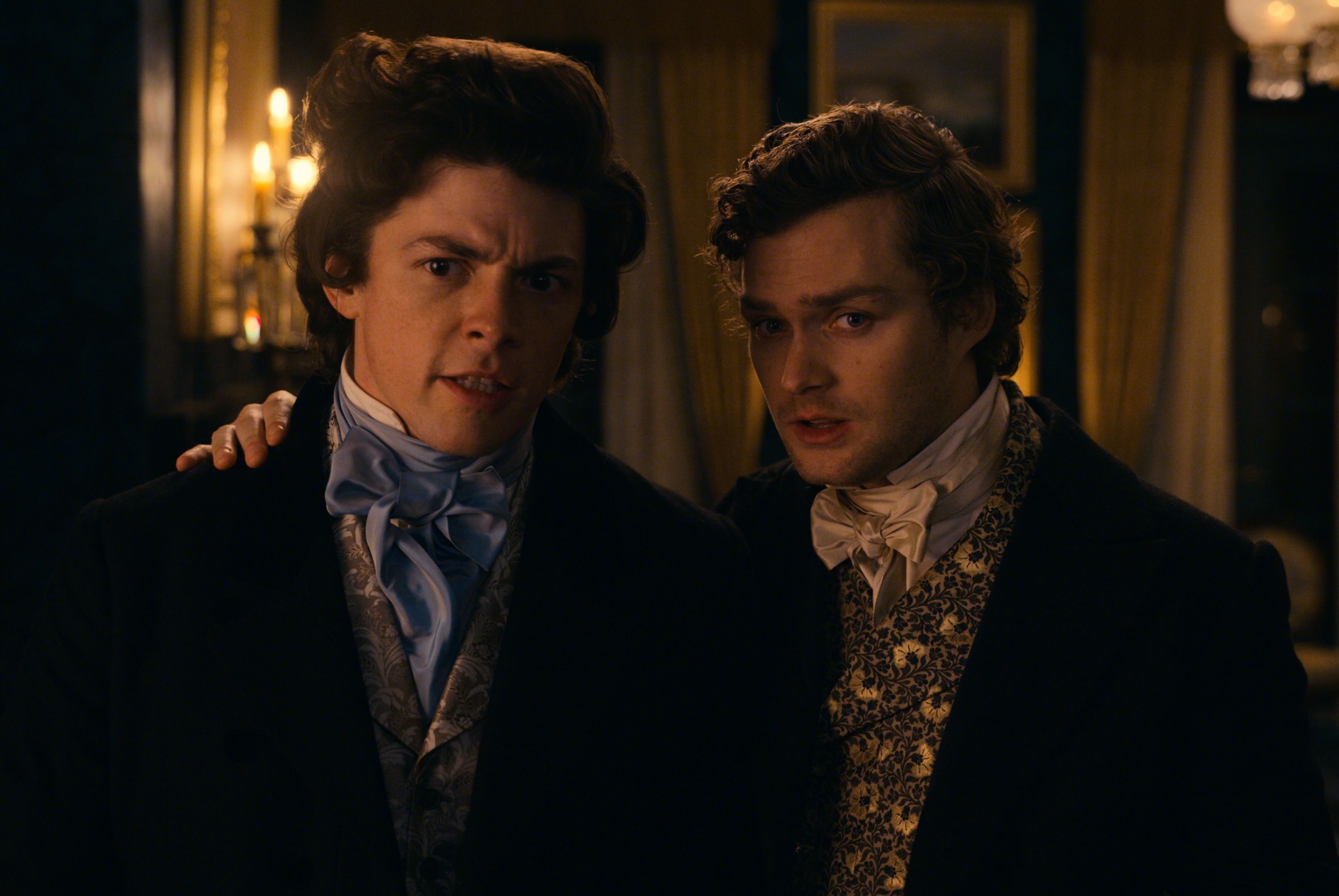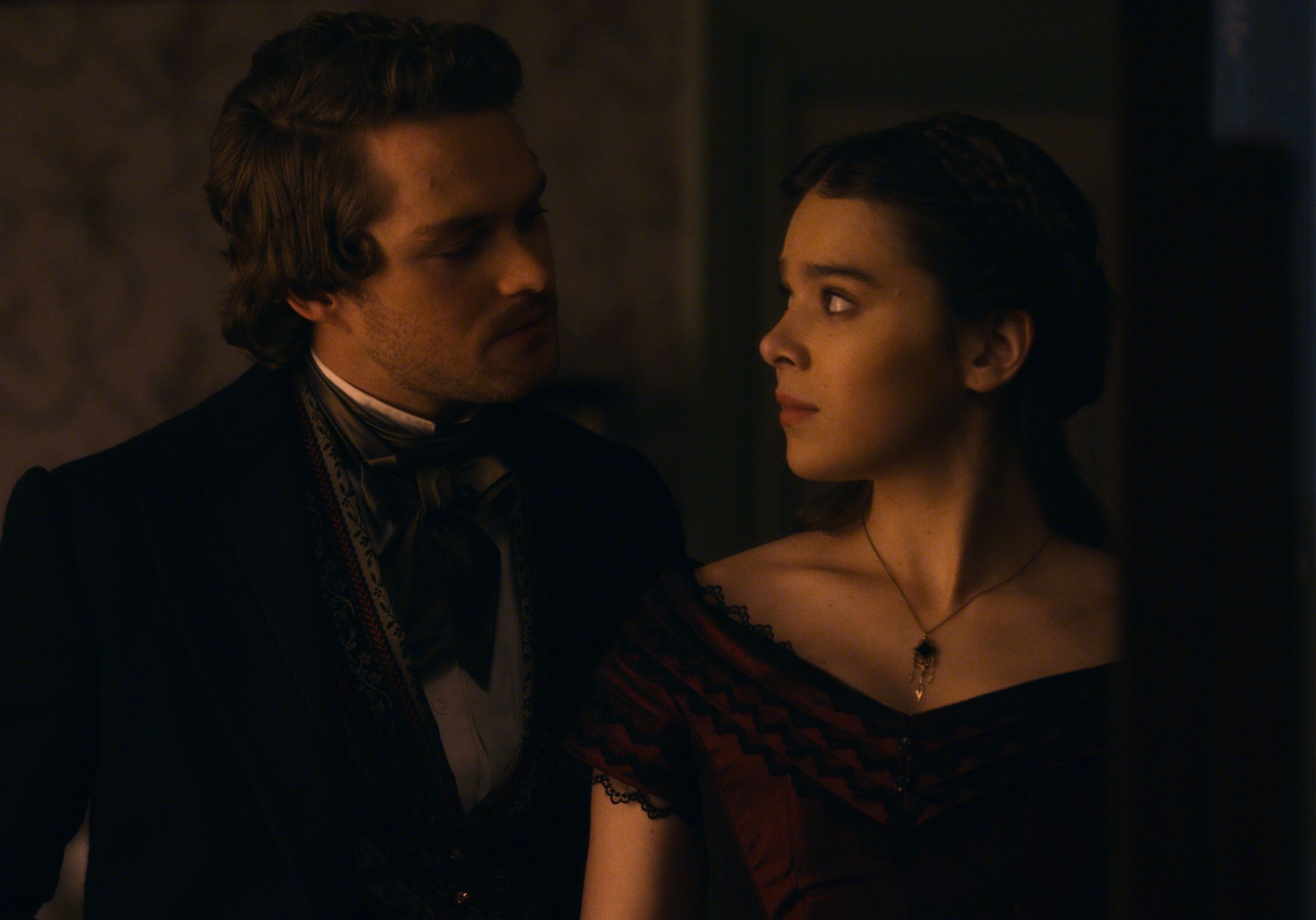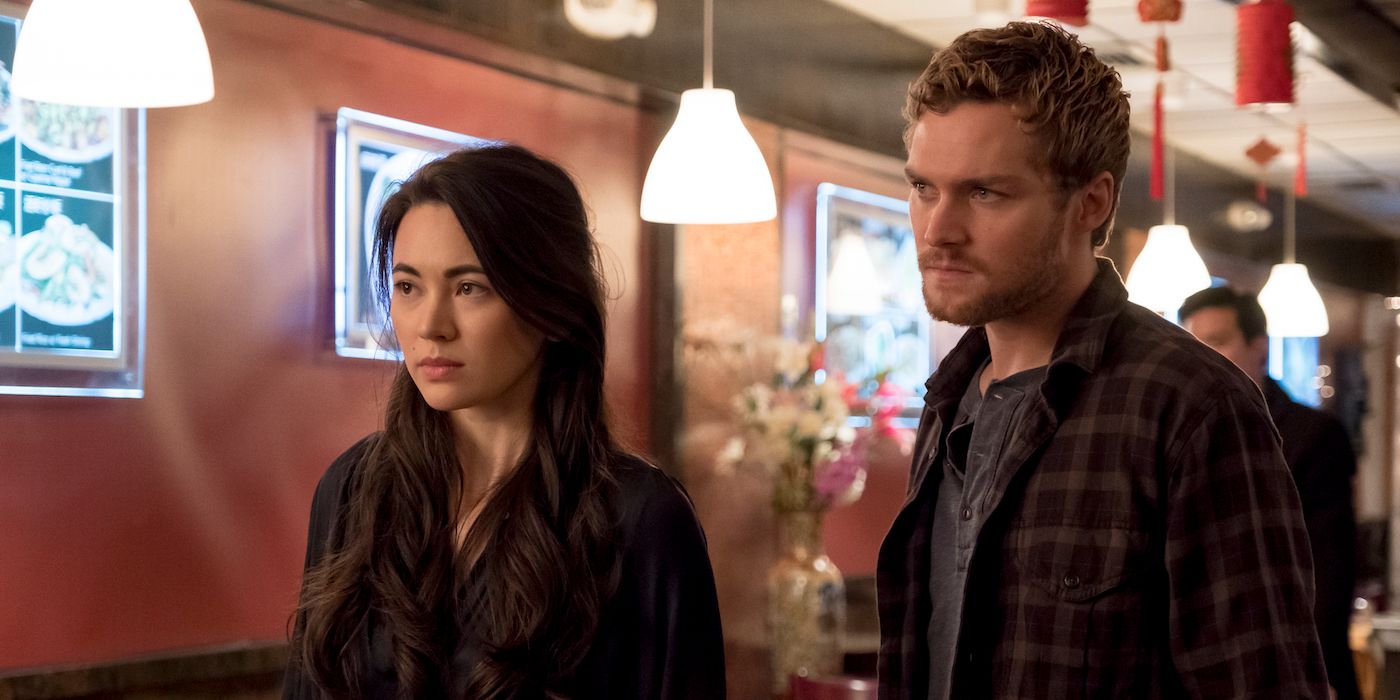From show creator Alena Smith, the Apple TV+ original series Dickinson follows Emily Dickinson (Hailee Steinfeld) on her road to being a published poet and the promise of fame that will follow. When Sam Bowles (Finn Jones), the ambitious editor of The Springfield Republican, does his best to convince her to take her work a step beyond letting just Sue Gilbert (Ella Hunt), her brother’s wife who she also happens to be in love with, read her poems, it tests Emily in ways that she never could have imagined.
[Editor's note: The following contains spoilers for Dickinson, Season 2, Episode 9, "I Like a Look of Agony."]
During a virtual press day, Collider got the opportunity to chat 1-on-1 with Finn Jones about the unique way Dickinson bridges the gap of historical fact and contemporary fiction, what he found most interesting about this character, getting all of the scripts for the season from the beginning, finding himself in a love triangle, the effects of fame, and whether Sam Bowles really has Emily Dickinson’s best interests at heart. He also talked about how unfortunate it was that Iron Fist never got to reach its full potential, and what a potential Season 3 would have been.
Collider: When the opportunity to be in the second season of this came your way, were you familiar with the show? Did you know about the unique take it had on the history of it all?
FINN JONES: When I took the job, Apple TV hadn’t launched yet, so the show hadn’t aired either. I was really going in blind, and I wasn’t really sure what the show was going to be like or how this contemporary historical fusion was going to play out. The moment I got on set and I realized the amount of resources, both creatively and financially, would be important to the show, I was like, “Okay, this is cool.” Alena [Smith] is so fantastic at bridging the gap of historical fact and contemporary fiction, and she does it in a way which is so tasteful and so genuinely cool. And then, Apple is just there to support [us] with deep pockets and a lot of time and a real eye for taste. It was a great combination.
What did you immediately find interesting and intriguing about this character? Did you have initial questions about him? Did you look into who he really was?
JONES: Yeah, I did a lot of research into the historical figure and, to be honest, a lot of the research out there is pretty boring. There’s not much about his character. It’s more just about his successes. So, for me, I was interested in how I could bridge the historical character with someone in contemporary times. The fact that he was the editor of this newspaper, which at the time, was this new technology in society, I drew comparisons between him and someone like Jack Dorsey, who is the owner of Twitter. That was really interesting, comparing him to this tech tyrant, if you will. I was also really interested in how, as an audience member, you’re never really sure where his intentions lie. Is he this very charming, magnetic champion of female creativity, or is he just this tech tyrant who wants to build his own empire and gratify his own needs. It’s awesome how the show flirts between the two. I almost see him as a snake, weaving in between both roles.
How much of your character’s arc for the season was sketched out for you in advance? Did you have a good idea of what his whole journey was going to be?
JONES: Yeah, I was given all of the episodes on day one. I was fully aware of where the character was going and that was really helpful. I think it’s really important to understand who the character is, at the beginning, so you’re able to play all of the depths, throughout the season.
This is a character who unknowingly finds himself in the middle a love triangle between Emily and Sue. What was that like for you to play with, especially now seeing how much fans love that relationship and being the one in between the two of them?
JONES: I know, I had no idea. That’s been the most interesting thing. I didn’t realize, because the show hadn’t aired yet, how much people love Emily and Sue, and me getting in the middle of that — I just love how much the character is hated. It gives me so much joy to see that I’m fulfilling that role. That’s really cool. But then, in terms of getting my head into the character’s emotional space, it’s just very complex. He has a wife at home. He really believes in Emily, as an artist, but he also has these very selfish desires to build his own empire. And then, he has these sexual urges with Sue. He’s probably going around the whole country doing this to multiple women. There’s a lot to unpack. I didn’t want him just to be this pantomime villain or bad guy. I wanted there to be depth there. Luckily, Alena writes so beautifully that there was the ability to have that depth with the character.
This season is such an interesting look and study of fame and the effect that can have on people. Did an exploration of fame in the time period of Dickinson make you look at fame today any differently than you did before doing this?
JONES: I found it really interesting. Alena writes this so wonderfully and Hailee [Steinfeld] performs it. As an artist, how do you keep your creative and personal integrity, when you’re faced with fame? That’s something that I’ve dealt with, in my own life, and I think the show deals with that really wonderfully. How do you keep famous in your life and not run away with it? And how do you also keep your own integrity, at the same time? I think it’s a really interesting conversation to be had.
Do you feel like Samuel Bowles has Emily Dickinson’s best interests at heart? Does it start that way and then becomes something more, once he gets more ambitious?
JONES: That’s an interesting point. It’s really complex. Ultimately, he is someone that does care about female creativity and shining a light on those voices, but he is also the head of a media conglomerate and his ultimate goal, as an individual, is to grow and expand his empire, by whatever means. It’s trendy and cool to take up social causes, especially right now, but back then, it was like, “Hey, look, I’ve got a female writer!” When it comes down to it and he really reveals the ugliness of his nature, he doesn’t care about Emily. All he cares about is expanding his empire, at whatever cost. Unfortunately, I think that’s who he is. He’s a tycoon and a tyrant, and he cares about profit. I think he’s probably doing the same thing to multiple women and multiple artists, around the country.
Sam tells Emily that she’s interesting to him and that he’s interested in her. Is it really that simple for him?
JONES: That’s where it gets very complex. Move fast and break things is his motto, and also the motto of Mark Zuckerberg, and we all see how that’s ending up. He’s hungry to expand his empire and expand his standing in the world, to attain power. Also, he sees Emily and he is very interested in her. She’s someone that is clearly incredibly talented, and he is very attracted to her talent and her intellect. He’s very motivated by and attracted to that. But ultimately, he is a man hungry for empire and power, and that’s what he’s driven by.
You really wonder if he’s manipulating things or if he’s being genuine, or if it’s both?
JONES: It’s both. That’s the amazing thing and the true thing about us, as human beings. We’re never one thing or the other. There’s always light and dark. There’s always a mixture of things going on within us. I love that Alena created a character that allows for that. He isn’t just this archetypal bad man in a feminist show. There is a lot of room for growth and understanding and misunderstanding. It was a lot of fun to play around in that space.
What was it like to say goodbye to this character and leave this show — these elaborate sets and the costumes — behind.
JONES: I had so much fun working on the show because I loved the character. I love the fact that the character was so questionable and so lascivious. I like playing someone who’s shady. It’s fun to get into that role. But also, working on the show with Alena and Hailee and Ella [Hunt], and all of the creative team and the directors, they really knew what they were doing. They were extremely professional, extremely talented and welcoming and friendly. And, um, it was really wonderful to be a part of that world and that family. It was sad to leave. I made lots of there. I just wish I could have continued creating with those guys.
The last time that we spoke was for Season 2 of Iron Fist and you had given me a few hints about where Season 3 could go next. What had you actually heard about the storyline for Season 3? Was there anything concrete that you actually were told and were really looking forward to?
JONES: So, me and Raven [Metzner], who was the showrunner for the second season, were sure that there was going to be a Season 3, so we had already devised the whole thing, and I was so excited to get into that. It really was going to be about Danny finally assuming the role of the Iron Fist, fully accomplished, fully charged up and fully in control of his shit, as well. It was going to be this amazing story Danny and Ward, off in foreign lands, as a buddy storyline almost. And then, you had Colleen in New York, isolated with this new power, struggling to come to terms with her identity and with this power. And then, at some point, we would have met again and probably formed this crazy power couple superhero relationship. Really, Season 3 just had so much promise and it’s a shame to see it squandered and never get to reach its full potential.
Now I’m sad all over again.
JONES: I know, right? It’s terrible.
As an actor, how hard was it to play a character on a show for two seasons and have all of that potential there, and then not really have any closure when the series abruptly ends?
JONES: It’s horrible. It’s like the death of a friend or a close family member. You’ve spent years building this other world within yourself and sharing this other person with the whole world. Usually, with films or plays, you get to see that arc through. There’s a journey. But with Iron Fist, it was like we just got to the peak. We were just getting there. We’d just turned the show around. We had just done so much great work, really getting the train back on the tracks. And then, within three weeks of it being released, all of [the Marvel Netflix shows] were wiped out. It was sad. It was stunted. It felt like the losing a dear friend. It’s just a shame. There’s not much else I can say.
Dickinson is available to stream at Apple TV+.




